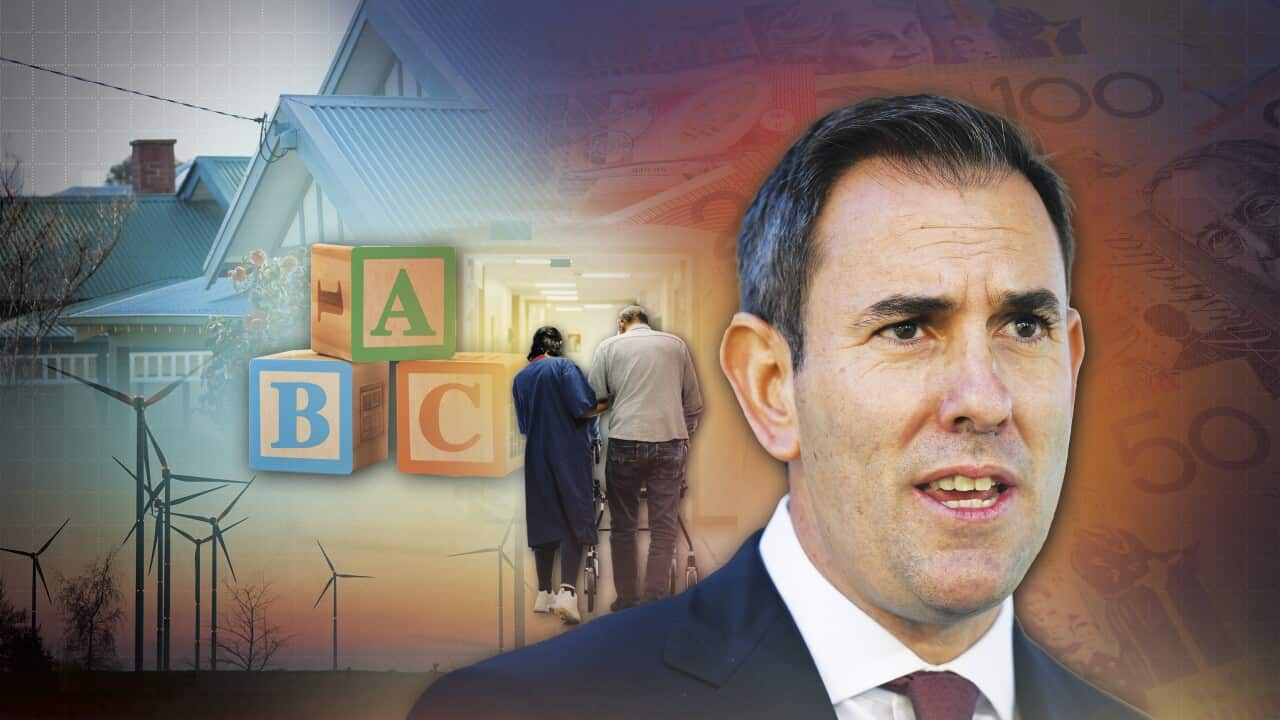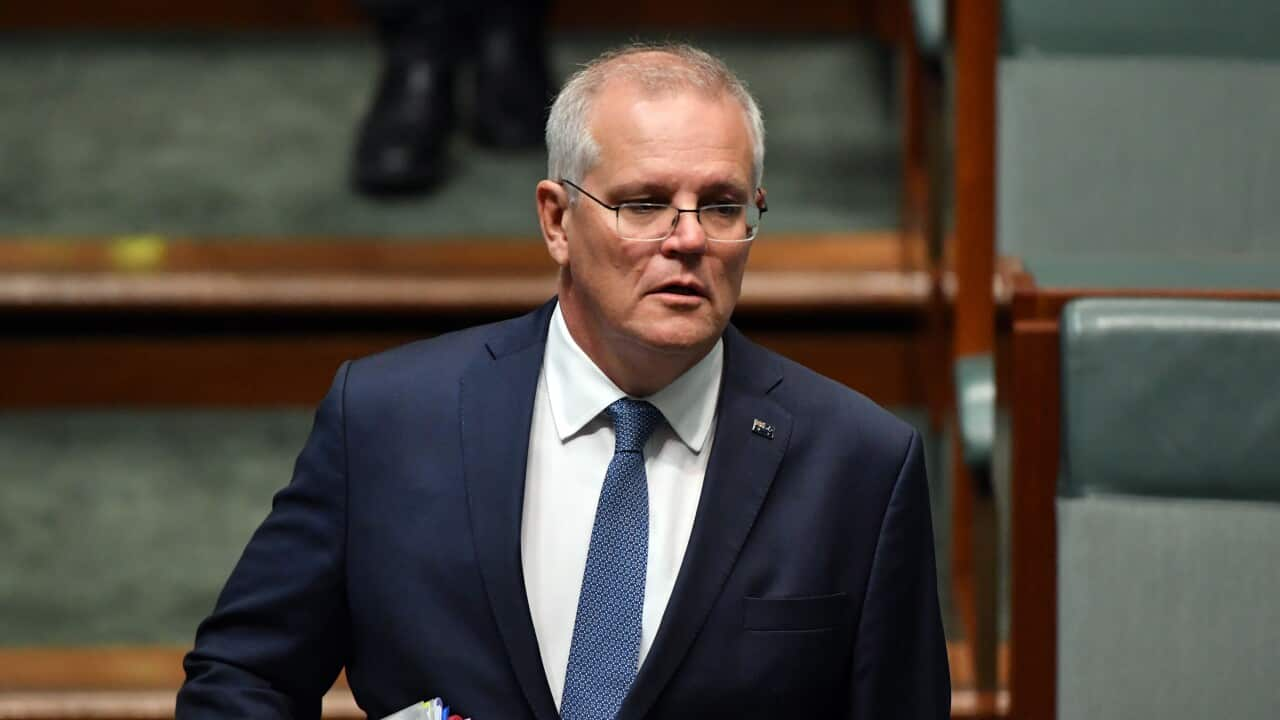Key Points
- The government is under scrutiny for its use of private consultancy firms.
- The former Coalition government spent nearly $21 billion on external labour hires in the public service in 2021-22.
- Experts say there are many reasons to use private firms, but there may be an over-reliance.
The government is under scrutiny for its rising reliance on external contractors and private consultancy firms amid a deepening tax scandal at consultancy firm PwC.
Labor ministers, including Environment Minister Tanya Plibersek, have had to spell out the details of the government's many contracts with PwC after revelations gained while helping the government develop tax codes to help its clients avoid paying taxes.
But it's not just PwC that the government outsources work to - the former Coalition government spent close to $21 billion on external labour hires in the public service in 2021-22, an audit has shown.
Dr Rodney Coyte from the University of Sydney said there are many reasons why the government would hire private firms, but there are times when there is an over-reliance.
"If you're bringing in expertise that should be developed in-house because you're using a lot of that type of expertise, then it's tipping the balance the wrong way," the Program Director of Master of Professional Accounting and Business Performance told SBS News.
"If you're bringing in extra resources as a skilled pair of hands because you just don't have enough, internally, but you need a higher level on an ongoing basis, then that would also be tipping the balance the wrong way."
Problems occur when government departments use "a lack of critical thinking and appraisal" over firms' advice, Associate Professor of Organisational Behaviour at Australian National University Alessandra Capezio told SBS News.
"I think there's a lot of good marketing behind a lot of the products that these consultancy firms sell, not just to the government, but there's not always solid science behind some of the products they're selling," she said.
How much money has the government spent on accounting firms?
According to the Australian Public Service Audit of Employment released earlier this month, most of the $21 billion the government spent last financial year was on IT contracts (43 per cent).
But work for the so-called Big Four consulting firms rose to $1.4 billion in that period, from $282 million a decade ago.
Centre for Public Integrity research shows the volume of contracts with PwC, KPMG, EY and Deloitte has increased 400 per cent in the past decade.
Public Service Minister Katy Gallagher said the audit results showed that the former government had a shadow public service plugging gaps.
"The Morrison government maintained its artificial cap on public servant numbers, promoting a mirage of efficiency, but were at the same time spending almost $21 billion of public money on a shadow workforce that was deliberately kept secret," she said earlier in the month.
Ms Plibersek on Wednesday took aim at the Coalition for its broad use of consultants while they held power.
"They spent $21 billion on outsourcing work that could have more properly been done by public servants in my own department," she said.
Opposition finance spokeswoman Jane Hume defended the use of consultants and rejected a link to the PwC scandal.
"The Commonwealth can't do everything on its own," she said.
"There will always be opportunities or necessity to appoint contracts with the big consultants or other experts in the field."
Why does the government use consultants?
Treasury Secretary Steven Kennedy defended the government's contracts with PwC.
“Do I think they have systematically failed us on an ongoing basis? No, I think the systems have worked well,” Dr Kennedy told Senate estimates.
“But do we have cause to more carefully look at these issues, to review and reform the tax practice Tax Practitioners Board, to increase the penalties available, to do all those things? The answer to that is clearly yes. That’s what the government has asked us to do, and they’ve begun to do that.”
Professor Capezio said that contracting to consultancy firms is "the thing to do," because there is a culture within the government of needing to validate ideas externally.
"The government relies on their reputations," she said, adding that this can lead to an "authority bias".
"The problem is, they don't critically appraise the advice given. They assume that because the advice comes from these reputable firms that they don't have to question and appraise its quality in its validity in its relevance to their problem and issues," she said.
Professor Capezio also said the public sector needs to sometimes get out of the habit of doing something to be seen as doing something and instead need to spend more time identifying their problems.
"Sometimes they can solve that problem quite well with their internal expertise. They don't have to go externally," she said.
"It doesn't matter where the advice is coming from internal or external. We need to bring a lot more critical thinking and constructive questioning into assessing the quality of that advice."
What do these firms do that the government can't?
In some cases, they provide a workforce that the public service doesn't have.
"If we look at what's happened to public service numbers in the federal government, they have been declining basically, since their peak in around 2012," Dr Coyte said.
The Labor Party accused the Morrison government of placing an arbitrary cap on the number of government employees.
The reasons anyone would hire a consultancy firm would be because they offer expertise or extra resources that they don't have at the time.
Additionally, they might offer a catalyst for change, Dr Coyte said.
"You bring in an external party if you trying to signal change, or you bring in consultants because you think there would be too much resistance if you try to do something internally," he said.
What are the risks of working with private contractors?
An over-reliance on outsourcing work can lead to an underdevelopment of internal skills and capability, Dr Coyte said.
It can also create a bias where organisations tell the government what they think it wants to hear "when there's profits to be made," he said.
Employment Minister Andrew Leigh said earlier in the month that the Commonwealth Evaluation Unit is expected to save millions more in private consultancy fees.
The unit received $10 million in the May budget and will essentially be responsible for checking public programs are working as they are meant to.
With AAP.













